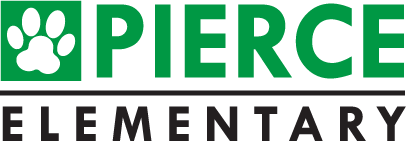The Pierce counseling program provides a comprehensive developmental program for all students, which includes consultation with teachers, staff, and parents to help students grow in their academic, social, emotional and career development. Counseling includes both individual and small group sessions, as well as guidance lessons in the classroom as it pertains to the students’ needs and CRCSD goals. Direct counseling support with students will be given through all possible services available. Counselors coordinate and/or conduct activities and programs that contribute to the effective operation of the school and towards prevention for students, staff, and parents.
You and your family are encouraged to contact Mrs. Cobert if you have any questions or concerns regarding your child’s well being while here at Pierce Elementary.
What is a school counselor?
A school counselor is a certified, trained, and caring professional who works with all students, parents, teachers, staff, and the community in order for each student to achieve academic and social success. School counseling services are delivered in four specific ways:
- School guidance curriculum: designing, structuring, and delivering classroom lessons designed to achieve specific competencies in all grades K-5 (personal/social, academic, career) and driven by the needs of the school population
- Individual student planning: assisting students with goal formation/planning (behavioral, academic, etc.)
- Responsive services: meeting immediate student needs (counseling, crisis intervention, consultation, referral, peer mediation, information-providing)
- System support: schoolwide program planning and implementation (PBIS, instructional leadership teaming, etc.), consulting with other professionals, coordination of various supports for students and families
School counseling supports
Individual counseling: A process where students discuss issues in a safe, positive, and confidential setting. Topics are based on the needs of the students and may include: feelings, changing families, peer pressure, friends, stress, academics, social skills, bullying, getting along with others, problem-solving, and decision-making.
Small group counseling: A process where students, sharing similar issues and concerns, work together in a small group environment consisting of about four to six peers. The group sessions usually last about 15-30 minutes and are held for approximately six to eight weeks. Topics are based on the needs of the students and may include divorce or changing families, grief and loss, friendship and social skills, study skills, conflict resolution, anger management, self-esteem, and stress-management.
Classroom guidance: A process that requires the school counselor to develop and implement K-5 classroom curriculum. This K-5 curriculum addresses personal, social, academic, and career-related needs at the child’s developmental level. Topics may include self-esteem, conflict resolution, study skills, anger management, career awareness, tattling/reporting, friendship/social skills, responsibility, respect, teasing/bullying, feelings, cooperation, goal setting/decision-making, and peer pressure.
School counseling programs
- Support the development, implementation, and monitoring of behavior plans
- Positive behavior interventions and supports (PBIS)
- Schoolwide developmental classroom counseling program
- Bully-prevention/intervention support
- Social/emotional learning
- arent-partnerships: conferencing, resourcing, programming
